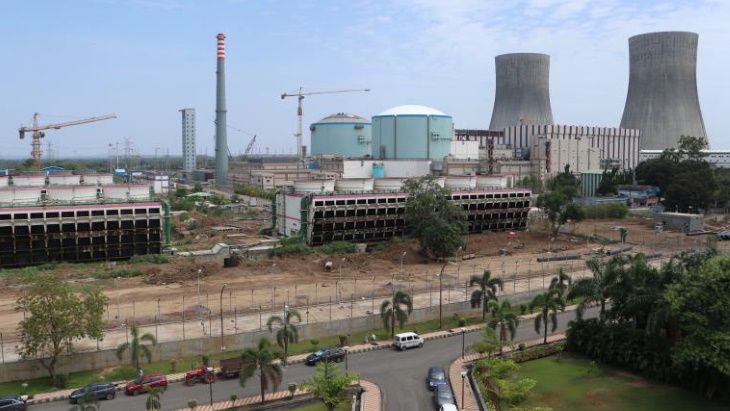India is preparing to start building reactors in "fleet" mode from next year, beginning with the first concrete for two 700 MWe pressurised heavy water reactors (PHWRs) at Kaiga in Karnataka, Department of Atomic Energy (DAE) officials have told a parliamentary panel.

Kakrapar: The first domestically designed 700 MWe PHWR was connected to the grid in January 2021 and a second is under construction (Image: NPCIL)
According to the Economic Times, DAE officials told the parliamentary science and technology committee that first concrete for Kaiga units 5 and 6 is expected in 2023, followed by Gorakhpur Haryana Anu Vidyut Praiyonjan units 3 and 4 and Mahi Banswara Rajasthan Atomic Power Projects units 1-4 in 2024 and Chutka Madhya Pradesh units 1 and 2 in 2025.
Building reactors in fleet mode will cut both costs and construction times, the DAE officials said, with construction for each unit expected to take five years from the first pour of concrete.
Separately, Minister of State Jitendra Singh on 23 March confirmed to the Lok Sabha - the Indian Parliament's lower house - that pre-project activities have begun at Kaiga 5 and 6, and bulk procurement and "long manufacturing" has begun for the other units. "On progressive completion of these nuclear power projects, a total capacity of 9000 MW would be added in the country," he said.
The Indian cabinet in 2017 approved the construction of ten domestically designed 700 MWe PHWR units using a fleet mode of construction to bring economies of scale as well as maximising efficiency. Nuclear Power Corporation of India Ltd is already building 700 MWe PHWRs: Kakrapar unit 7, where construction began in 2010, and Rajasthan units 7 and 8, both under construction since 2011.
In addition to the PHWRs, a domestically designed prototype fast breeder reactor is under construction at Kalpakkam near Madras. Four Russian-designed VVER 1000 reactors are under construction at Kudankulam in Tamil Nadu.
Researched and written by World Nuclear News